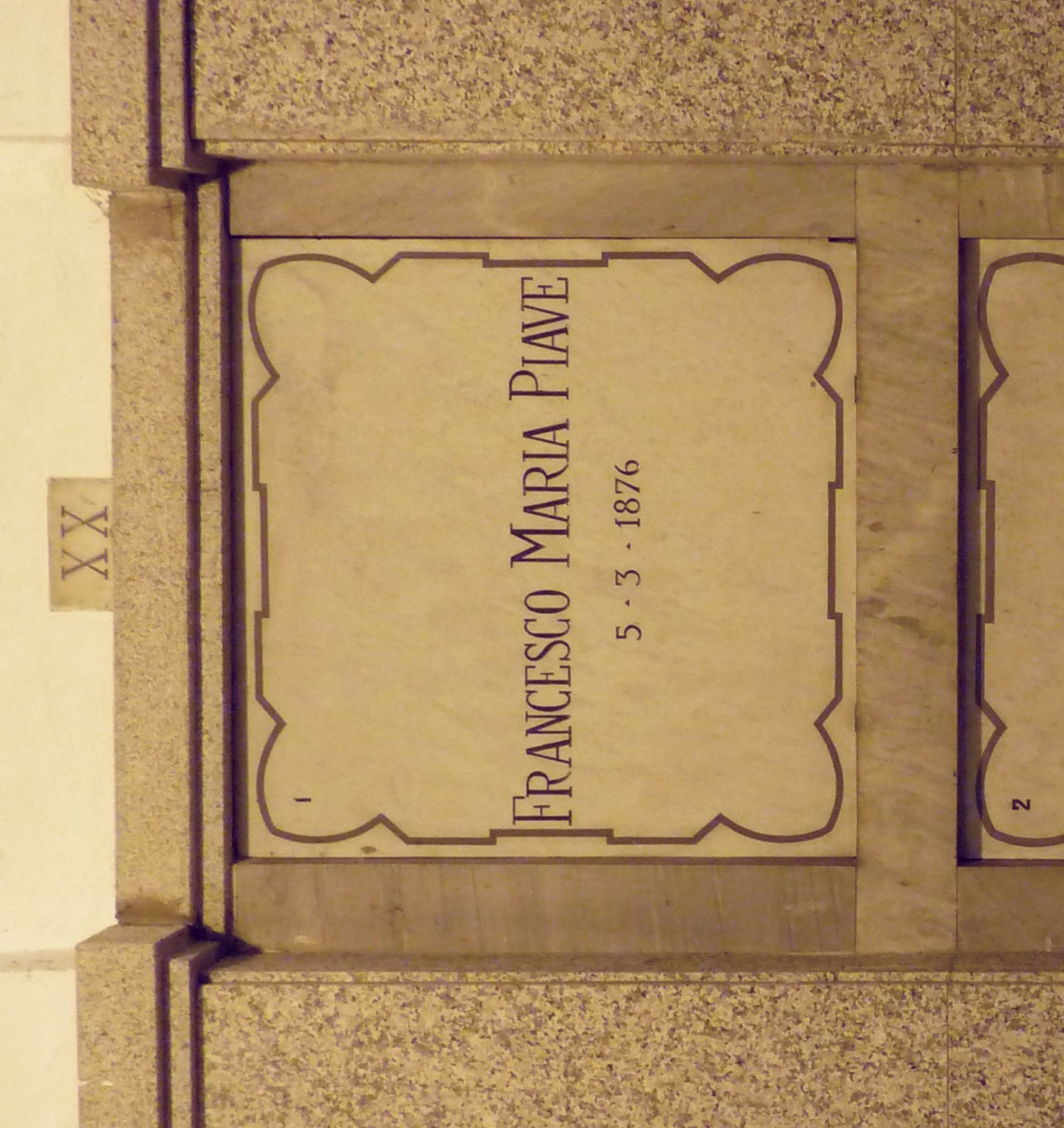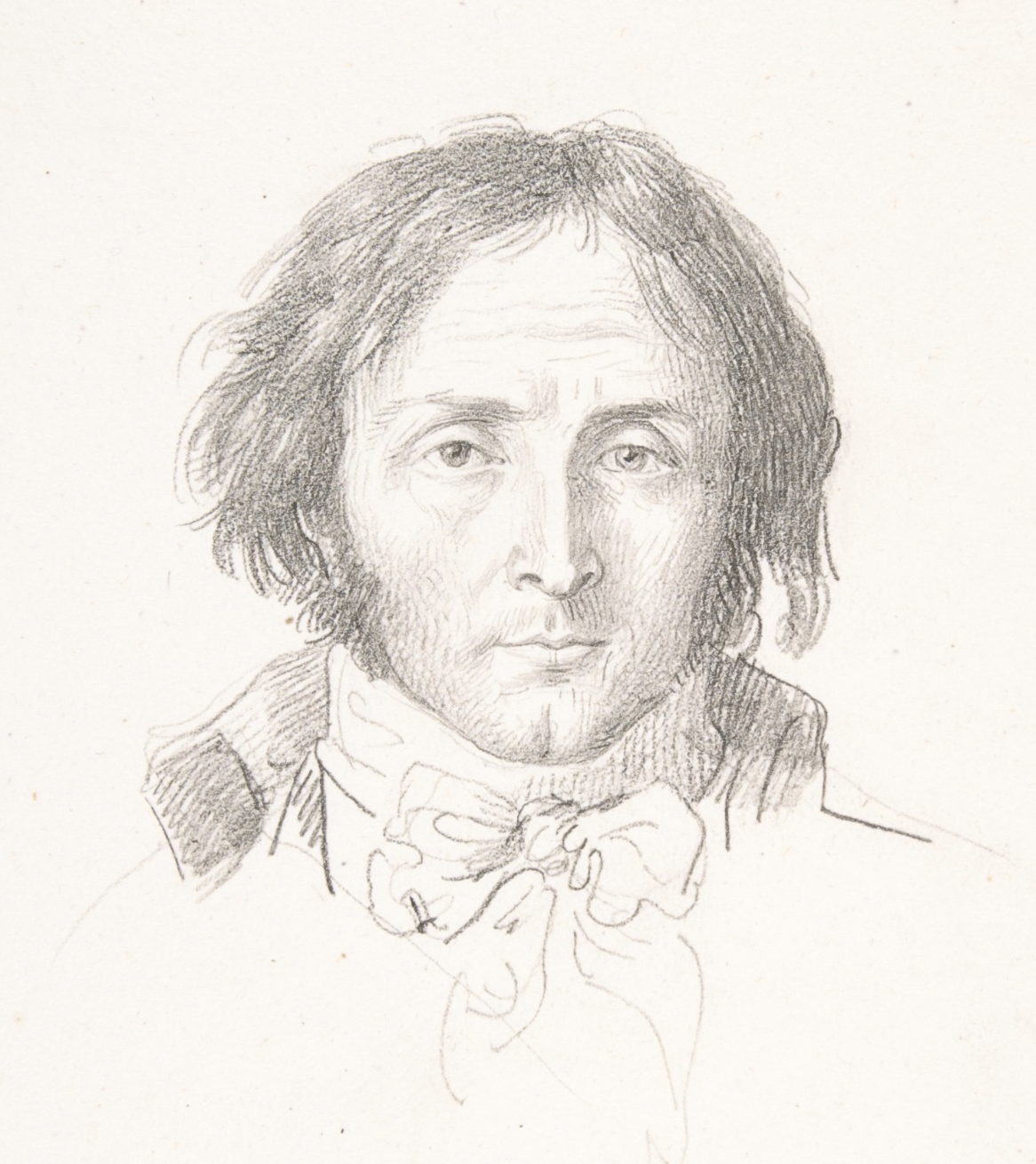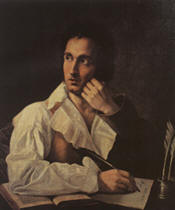|
Luigi Ricci (composer)
Luigi Ricci (8 July 1805 – 31 December 1859), was an Italian composer, particularly of operas. He was the elder brother of Federico Ricci, with whom he collaborated on several works. He was also a conductor. Life Ricci was born and educated in Naples, where he wrote his first opera at the conservatory in 1823. His triumphs in 1831 at La Scala with ''Chiara di Rosembergh'' and in 1834 with ''Un'avventura di Scaramuccia'' made him famous throughout Europe, and in 1835 he and his younger brother Federico collaborated in the first of the four operas they wrote together. In 1837 Ricci ran into financial problems, brought about mainly by his extravagant life-style. He was forced to accept a job at Trieste, and he composed no operas for seven years. Then, however, he fell in love, at the same time, with both Francesca and Ludmila, the 17-year-old identical twin sisters of the singer Teresa Stolz, also singers, and this inspired him to create (in 1845) an opera for them both to si ... [...More Info...] [...Related Items...] OR: [Wikipedia] [Google] [Baidu] |
Luigi Ricci
Luigi Ricci may refer to: * Luigi Ricci (composer) (1805–1859), Italian composer * Luigi Ricci (vocal coach) Luigi Ricci (1893–1981) was an Italian assistant conductor, accompanist, vocal coach, and author. Career Ricci began studying music as a child and at age twelve started accompanying voice lessons given by the famous baritone Antonio Cotogni, w ... (1893–1981), Italian assistant conductor and vocal coach * Gino Ricci (1910-?), Italian javelin thrower {{hndis, Ricci, Luigi ... [...More Info...] [...Related Items...] OR: [Wikipedia] [Google] [Baidu] |
Niccolò Antonio Zingarelli
Niccolò Antonio Zingarelli (; 4 April 1752 – 5 May 1837) was an Italian composer, chiefly of opera. Life Early career Zingarelli was born in Naples, where he studied (from the age of 7) at the Santa Maria di Loreto Conservatory under Fenaroli and Speranza. In 1789–1790 Zingarelli went to Paris to compose ''Antigone''. He left France hurriedly at the time of the revolution and eventually returned to Italy. He was appointed maestro di cappella at Milan Cathedral in 1793, and remained there until 1794, when he took up the prestigious post of maestro di cappella at the Santa Casa, Loreto. Rome In 1804, Zingarelli was appointed choir master of the Sistine Chapel in Rome. Seven years later he publicly refused, as an Italian patriot, to conduct a ''Te Deum'' for Napoleon's new-born son, known as King of Rome, in St. Peter's Basilica. As a result of this refusal he was captured and taken to Paris. Nevertheless, the Emperor was a great admirer of Zingarelli's music and soon gav ... [...More Info...] [...Related Items...] OR: [Wikipedia] [Google] [Baidu] |
Triest
Trieste ( , ; sl, Trst ; german: Triest ) is a city and seaport in northeastern Italy. It is the capital city, and largest city, of the autonomous region of Friuli Venezia Giulia, one of two autonomous regions which are not subdivided into provinces. Trieste is located at the head of the Gulf of Trieste, on a narrow strip of Italian territory lying between the Adriatic Sea and Slovenia; Slovenia lies approximately east and southeast of the city, while Croatia is about to the south of the city. The city has a long coastline and is surrounded by grassland, forest, and karstic areas. The city has a subtropical climate, unusual in relation to its relatively high latitude, due to marine breezes. In 2022, it had a population of about 204,302. Capital of the autonomous region of Friuli Venezia Giulia and previously capital of the Province of Trieste, until its abolition on 1 October 2017. Trieste belonged to the Habsburg monarchy from 1382 until 1918. In the 19th century the monarc ... [...More Info...] [...Related Items...] OR: [Wikipedia] [Google] [Baidu] |
Francesco Maria Piave
Francesco Maria Piave (18 May 18105 March 1876) was an Italian opera librettist who was born in Murano in the lagoon of Venice, during the brief Napoleonic Kingdom of Italy. Career Piave's career spanned over twenty years working with many of the significant composers of his day, including Giovanni Pacini (four librettos), Saverio Mercadante (at least one), Federico Ricci, and even one for Michael Balfe. He is most well known as Giuseppe Verdi's librettist, for whom he was to write 10 librettos, the most well-known being those for ''Rigoletto'' and ''La traviata''. But Piave was not only a librettist: he was a journalist and translator in addition to being the resident poet and stage manager at La Fenice in Venice where he first encountered Verdi. Later, Verdi was helpful in securing him the same position at La Scala in Milan.Baldini 1970, pp. 70 - 74 His expertise as a stage manager and his tact as a negotiator served Verdi very well, but the composer bullied him mercilessly ... [...More Info...] [...Related Items...] OR: [Wikipedia] [Google] [Baidu] |
Teatro Della Pergola
The Teatro della Pergola is an historic opera house in Florence, Italy. It is located in the centre of the city on the Via della Pergola, from which the theatre takes its name. It was built in 1656 under the patronage of Cardinal Gian Carlo de' Medici to designs by the architect Ferdinando Tacca, son of the sculptor Pietro Tacca; its inaugural production was the opera buffa, '' Il potestà di Colognole'' by Jacopo Melani. The opera house, the first to be built with superposed tiers of boxes rather than raked semi-circular seating in the Roman fashion,As in the Teatro Olimpico of Vicenza, designed by Andrea Palladio in the previous century. is considered to be the oldest in Italy, having occupied the same site for more than 350 years. It has two auditoria, the 'Sala Grande', with 1,500 seats, and the 'Saloncino', a former ballroom located upstairs which has been used as a recital hall since 1804 and which seats 400. Work on completing the interior was finished in 1661, in time fo ... [...More Info...] [...Related Items...] OR: [Wikipedia] [Google] [Baidu] |
Teatro Del Fondo
The Teatro del Fondo is a theatre in Naples, now known as the Teatro Mercadante. It is located on Piazza del Municipio, Naples, Piazza del Municipio #1, with the front facing the west side of Castel Nuovo, Naples, Castel Nuovo and near the Molo (Dock) Siglio. Together with the Teatro San Carlo, it was originally one of the two royal opera houses of the 18th and 19th-century city. It opened in 1779 as the 'Teatro del Real Fondo di Separazione', with comic operas sung mainly in Tuscan. The Mozart operas ''Don Giovanni'', ''The Marriage of Figaro'' and ''Così fan tutte'' were performed there (1812-1815) and also a number of French operas under the patronage and influence of Joseph Bonaparte, King of Naples (1806-1808). The theatre was later used by Gioachino Rossini, who became the music director of the royal theatres, Giovanni Pacini and Gaetano Donizetti and many other leading composers. After a period of relative inactivity, in 1871 it was renamed the Real Teatro Mercadante, afte ... [...More Info...] [...Related Items...] OR: [Wikipedia] [Google] [Baidu] |
Friedrich Von Flotow
Friedrich Adolf Ferdinand, Freiherr von Flotow /flo:to/ (27 April 1812 – 24 January 1883) was a German composer. He is chiefly remembered for his opera ''Martha'', which was popular in the 19th century and the early part of the 20th. Life Born in Teutendorf, in Mecklenburg, into an aristocratic family, Flotow was French-trained. Although he was intended for a diplomatic career, his father acceded to his wishes and he studied at the Conservatoire de Paris under Anton Reicha. During this time came under the influence of Auber, Rossini, Meyerbeer, Donizetti, Halévy, and later Gounod and Offenbach. These influences are reflected in his operas, where a distinctive French ''opéra comique'' flavour exists. During the 1830 revolution he returned home, writing chamber music and operetta until it was safe to return to Paris. He completed his first opera in 1835, ''Pierre et Cathérine'', but his breakthrough came with ''Le naufrage de la Méduse'' (1839), based on the wreck of ... [...More Info...] [...Related Items...] OR: [Wikipedia] [Google] [Baidu] |
Scaramuccia
Scaramouche () or Scaramouch (; from Italian Scaramuccia , literally "little skirmisher") is a stock clown character of the 16th-century commedia dell'arte (comic theatrical arts of Italian literature). The role combined characteristics of the ''Zanni'' (servant) and the '' Capitano'' (masked henchman), with some assortment of villainous traits. Usually attired in black Spanish dress and burlesquing a Don, he was often beaten by Harlequin for his boasting and cowardice. History Although Tiberio Fiorillo (1608–1694) was not the first to play the role, he greatly developed and popularized it. He removed the mask, used white powder on his face, and employed grimaces. He was small , long beard, and wore a predominantly black costume with a white ruff. In France he became known as Scaramouche. In the 19th century, the English actor Joseph Grimaldi and his son J. S. Grimaldi made numerous appearances as Scaramouche. Character Scaramouche influences the audience to do his biddin ... [...More Info...] [...Related Items...] OR: [Wikipedia] [Google] [Baidu] |
Teatro Alla Scala
La Scala (, , ; abbreviation in Italian of the official name ) is a famous opera house in Milan, Italy. The theatre was inaugurated on 3 August 1778 and was originally known as the ' (New Royal-Ducal Theatre alla Scala). The premiere performance was Antonio Salieri's ''Europa riconosciuta''. Most of Italy's greatest operatic artists, and many of the finest singers from around the world, have appeared at La Scala. The theatre is regarded as one of the leading opera and ballet theatres globally. It is home to the La Scala Theatre Chorus, La Scala Theatre Ballet, La Scala Theatre Orchestra, and the Filarmonica della Scala orchestra. The theatre also has an associate school, known as the La Scala Theatre Academy ( it, Accademia Teatro alla Scala, links=no), which offers professional training in music, dance, stagecraft, and stage management. Overview La Scala's season opens on 7 December, Saint Ambrose's Day, the feast day of Milan's patron saint. All performances must end befor ... [...More Info...] [...Related Items...] OR: [Wikipedia] [Google] [Baidu] |
Gaetano Rossi
Gaetano Rossi (; 18 May 1774 – 25 January 1855) was an Italian opera librettist for several of the well-known ''bel canto''-era composers including Gioachino Rossini, Gaetano Donizetti, and Saverio Mercadante in Italy and Giacomo Meyerbeer in one of his early Italian successes. Other composers with whom he worked included Simon Mayr, a composer and Donizetti's teacher, as well as the prolific Giovanni Pacini. Biography Born in Verona, Rossi was writing religious verse by the time that he was 13 years old. He wrote libretti for about 60 years, beginning in 1797 with mostly farsas. Rossi wrote the texts for some significant operas by the well-known composers of the era. These included ''Tancredi'' and ''Semiramide'' for Rossini and '' Il crociato in Egitto'' for Meyerbeer, as well as later operas for Donizetti such as ''Maria Padilla'' (as co-author) and ''Linda di Chamounix''. In addition to his writing, he also worked for a time as the stage director for the Teatro Filarmonico ... [...More Info...] [...Related Items...] OR: [Wikipedia] [Google] [Baidu] |
Teatro Valle
Teatro may refer to: * Theatre * Teatro (band) Teatro, Italian for "theatre", is a vocal group signed to the Sony BMG music label. The members of Teatro are Jeremiah James, Andrew Alexander, Simon Bailey and Stephen Rahman-Hughes. Band members Jeremiah James Jeremiah James was born in upst ..., musical act signed to Sony BMG * ''Teatro'' (Willie Nelson album), 1998 * ''Teatro'' (Draco Rosa album), 2008 {{disambiguation ... [...More Info...] [...Related Items...] OR: [Wikipedia] [Google] [Baidu] |
Jacopo Ferretti
Jacopo Ferretti (16 July 1784 – 7 March 1852) was an Italian writer, poet and opera librettist. His name is sometimes written as Giacomo Ferretti. He is most famous for having supplied the libretti for two operas composed by Rossini and for five operas composed by Donizetti. Life Introduced by his father to literature while very young, in addition to his native Italian, Ferretti mastered not only Latin and Ancient Greek but also French and English, and began writing verse early. Even though he worked in the tobacco industry from the age of about 30 until he was over 60, he was extremely prolific, writing "everything from love letter to odes and welcoming speeches", and numerous opera libretti, all but the few listed below being generally forgotten. His first big success was ''La Cenerentola'', written at great speed for Rossini over Christmas in 1816. Ferretti wrote afterwards how he had agreed to write a libretto on a subject which the censor vetoed, so he met the composer ... [...More Info...] [...Related Items...] OR: [Wikipedia] [Google] [Baidu] |









